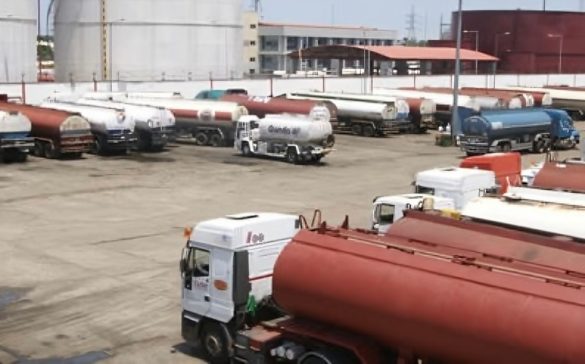KEY POINTS
- Nigeria’s labour minister has called an emergency meeting to resolve PENGASSAN’s strike threat against Dangote Refinery after the dismissal of 800 workers.
- PENGASSAN has ordered a nationwide withdrawal of services and threatened to cut crude and gas supply to the $20 billion refinery.
- The government is urging both sides to reach an amicable resolution to prevent disruptions in fuel supply and protect jobs.
Nigeria’s federal government is scrambling to head off a looming nationwide strike by senior oil workers after a confrontation between the Petroleum and Natural Gas Senior Staff Association of Nigeria, PENGASSAN, and Dangote Refinery escalated over the weekend.
Labour and Employment Minister Muhammad Dingyadi said on Sunday that the government has invited both sides to an emergency meeting in Abuja scheduled for Monday morning, urging the union to suspend its planned industrial action.
“We have reached out to PENGASSAN leadership and the management of Dangote Refinery to sit at the same table,” Dingyadi said. “It is important that this dispute is addressed peacefully, in a way that safeguards jobs, the refinery’s operations, and the national interest.”
Workers’ Union Standoff Puts Energy Sector on Edge
The crisis stems from PENGASSAN’s anger over what it calls the “mass sack” of more than 800 Nigerian employees at the $20 billion Dangote Refinery, the country’s flagship downstream oil project. The union described the dismissals as a blatant violation of labour rights and a dangerous precedent for the energy sector.
In response, PENGASSAN ordered its members to withdraw services nationwide, threatening a disruption in crude and gas supplies to the refinery.
The standoff coincides with broader concerns about fuel availability, after Dangote Refinery recently halted petrol sales in naira, sparking fresh tensions with regulators and marketers.
The refinery, commissioned last year, has been touted as a game-changer for Nigeria’s downstream industry, with capacity to meet domestic demand and export fuel across Africa. But the dispute with organised labour highlights the fragile balance between private sector ambitions and workers’ rights in a country where oil still dominates government revenues.



